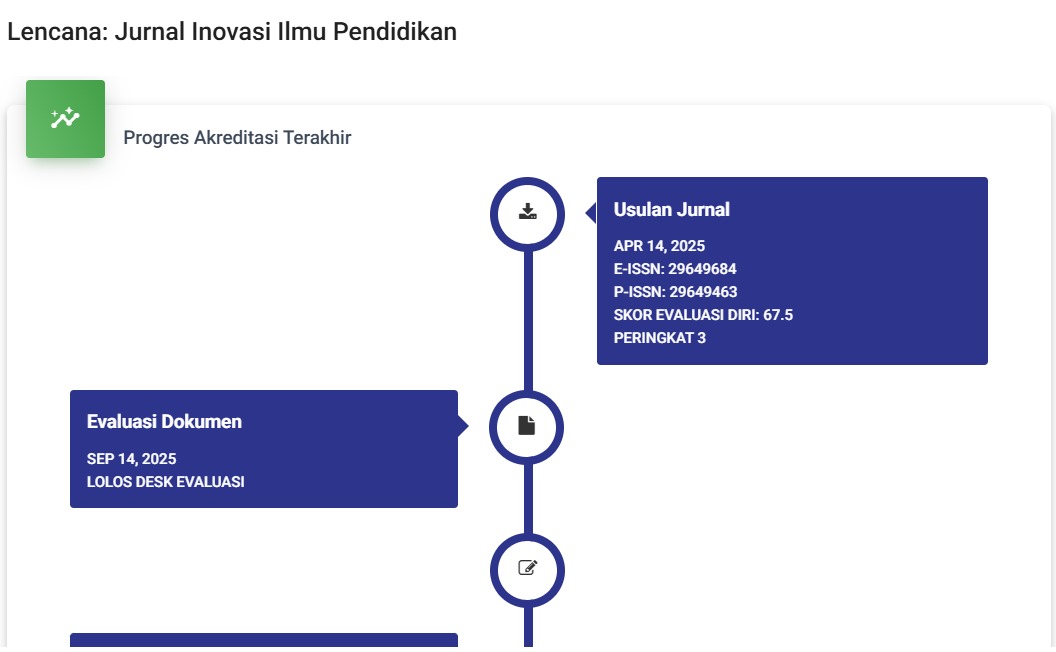KONSEP PENDIDIKAN ETIKA DALAM BERIBADAH (KAJIAN Q.S AL-ISRA AYAT 110)
DOI:
https://doi.org/10.55606/lencana.v1i3.1811Keywords:
Education, Ethics, WorshipAbstract
The purpose of this study is to: 1. (Al Isro:110. 2. Determine the relevance of ethics education in worship. 3. To clarify the background of the concept of ethics education in contemporary worship."This study is a descriptive study, which means that questionnaires or literature searches were used to collect data. both primary and secondary data were used to gather study material. The Qur'an Karim and some of our commentary serve as the primary sources of knowledge. Books, newspapers, journals, internet media, and other materials that are relevant to the thesis subject serve as secondary data sources. The Al-Quran, the Tafsir, and other significant texts are employed as documents as part of the documentation data collecting approach. Textual information is analyzed using both content analysis and discourse analysis. The goal of content analysis is to make the book's contents clear. Discourse analysis, a different approach owing to the constraints of content analysis, studies the meaning of communications with an emphasis on covert (latent) meanings.The following conclusions may be drawn from the author's research findings: (1) Moral instruction in worship is regarded as one of the most crucial aspects of human existence, according to the interpretation of QS. Al-Isra verse 110.(2) The idea of character education in worship refers to human customs or conduct based on the course of action or rules established by Allah SWT.(3) Setting the idea of education at the forefront of growth or the contemporary morals or ethics of the millennial generation,
Downloads
References
“Abidin, A.Mustika. 2021. Pendidikan Moral Dan Relevansinya Dengan Pendidikan Islam. Universitas Islam Negeri (UIN) Alauddin Makassar. VOL 2 NO 1 (2021): EDISI AGUSTUS“
“Al-Abrasyi, Muhammad Athiyyah, 2003. At-Tarbiyah al-Islamiyah, terjemahan oleh; Abdulllah Zaky Alkaaf Cet.I; Bandung: CV Pustaka Setia.“
“Baqir, Haidar. 2005. Buku Saku Filsafat Islam, Bandung Mizan.“
“Hamdani, 2011. Dasar-dasar Pendidikan, Bandung,Pustaka Setia.“
“Ibrahim, Syaikh Muhammad bin, 2013. Ensiklopedi Islam Kaffah, terj. Najib Junaidi dan Izzudin Karimi Surabaya: Pustaka Yassir.“
“Muslim, Diriwayatkan oleh al-Bukhariy dan. Lihat: al-Bukhariy, Sahih al-Bukhariy, dalam Kitab at-Tafsir, Bab Wala Tajhar bi Salatik wa la Tukhafit biha, hlm. 1172, hadis nomor 4722; Muslim, Sahih Muslim, dalam Kitab as-Salah, Bab at-Tawassut fi al-Qira’ah fi as-Salah al-Jahriyyah, hal. 329, hadis nomor 446.“
“Pratama & Karakter, 2021.“
“Saleh, H. E Hassan, Kajian Fiqih Nabawi & fiqh Kontemporer Jakarta: Raja Granfindo Persada.“
“Shihab, M. Quraish, 2002. Tafsir Al-Misbah Pesan, Kesan dan Keserasian Al-Quran, Jakarta: Lentera Hati.“
“Shihab, Tafsir Al-Misbah.“
“Sonny, Keraf. A. 2002. Etika Lingkungan, Jakarta: Penerbit Buku Kompas.“
“SP Sinulingga, 2016. - Jurnal Demo.“
“Undang-Undang Sistem Pendidikan Nasional, Yogyakarta: Pustaka Pelajar, 2009.“
“Widagdo, Bambang, 2012. Aqidah & Ibadah, ed. Saiful Amien, ke 1. Malang: UMM Press.“








